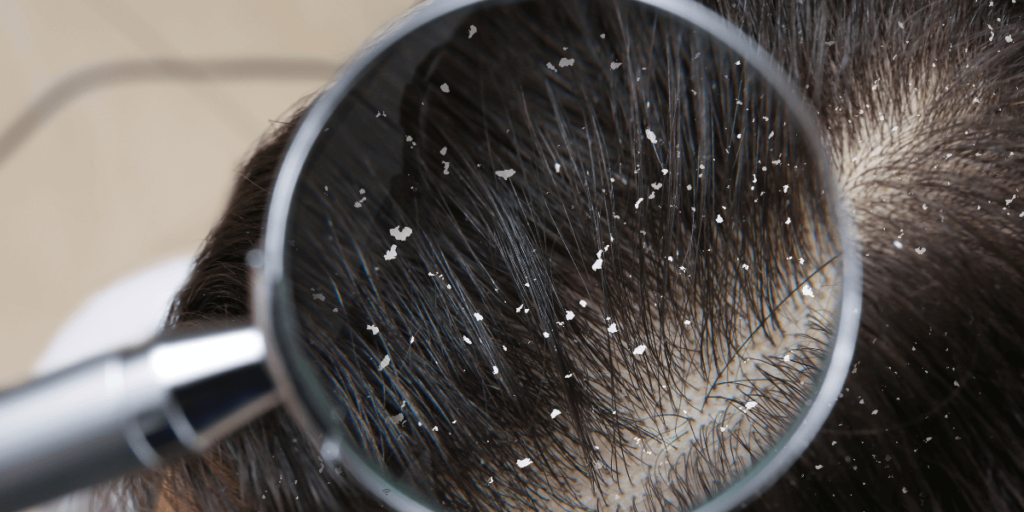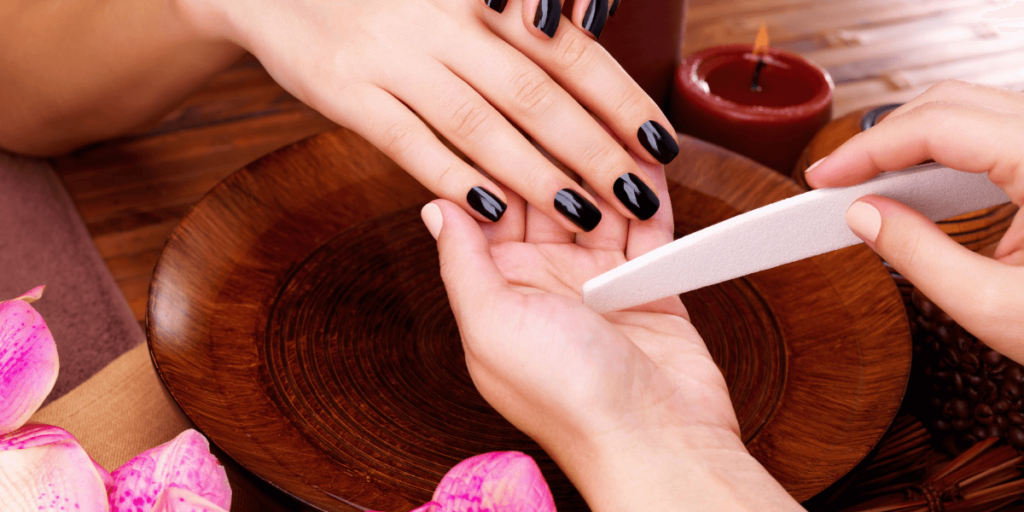Effective Treatments for Dandruff-Prone Hair: Simple Solutions
Dandruff is one of the most common scalp conditions that affect people all over the world. While it’s not harmful, it can cause significant discomfort and embarrassment. Understanding dandruff, its causes, and how to treat it effectively can make a big difference in your confidence and overall hair health. This article is designed to guide you through various aspects of dealing with dandruff, from identifying it to finding the best treatments available.
At some point in their lives, almost everyone encounters the frustrating experience of itching and flaking associated with dandruff. Despite its prevalence, it’s a condition that is still commonly misunderstood. Many people are uncertain about what exactly causes dandruff and what can be done to mitigate its effects. This uncertainty can lead to insufficient or improper treatment methods that may exacerbate the problem.
Luckily, there are numerous effective treatments and daily routines you can adopt to manage dandruff effectively. Advances in dermatology and hair care have made it possible to significantly reduce dandruff and its symptoms. From specialized shampoos to homemade scalp treatments, plenty of options exist to help you maintain a healthy and dandruff-free scalp.
In this comprehensive guide, we’ll delve into identifying dandruff, exploring its common causes, and providing practical and effective solutions. Let’s take a closer look at what you can do to treat your dandruff-prone hair, while also discussing lifestyle changes that can support your overall scalp health.
Identifying Dandruff
One of the first steps in managing dandruff is correctly identifying it. Dandruff typically presents through visible white flakes in the hair and on the shoulders, along with an itchy scalp. However, it’s important to distinguish it from other scalp conditions, such as psoriasis and fungal infections.
Signs and Symptoms
- Flaking: The most obvious sign of dandruff is the presence of white flakes on the scalp and shoulders. The flakes are usually small, round, and may vary in size.
- Itching: Another common symptom is an itchy scalp. While scratching might provide temporary relief, it often leads to more flaking.
- Redness and Dryness: In some cases, the scalp might also become red and dry, causing further discomfort.
Diagnostic Methods
If you’re unsure whether your symptoms are indeed dandruff, it can be helpful to consult with a dermatologist. A professional can rule out other conditions and confirm that it is dandruff you are dealing with. This is crucial because treatments for other scalp conditions may not be effective against dandruff.
Comparing with Other Conditions
| Condition | Primary Symptoms | Treatments |
|---|---|---|
| Dandruff | White flakes, itching, dry scalp | Anti-dandruff shampoos, moisturizing treatments |
| Psoriasis | Silver-like scales, patches of red skin, thickened skin | Topical steroids, prescription medications |
| Seborrheic Dermatitis | Greasy scales, yellow flakes, inflammation | Antifungal treatments, medicated shampoos |
| Fungal Infections | Circular patches of hair loss, inflammation, itching, sometimes a secondary bacterial infection | Antifungal medications, proper hygiene |
Correct diagnosis is essential for effective treatment. Misdiagnosis could lead to ineffective care and prolonged discomfort, so ensure that you understand what you are dealing with before proceeding with treatment.
Common Causes of Dandruff
Understanding the root cause of your dandruff is key to selecting the right treatment. Dandruff can result from a variety of factors and knowing what triggers your dandruff can help you get it under control.
Malassezia Fungus
One of the most common culprits behind dandruff is a yeast-like fungus known as Malassezia. This fungus is naturally present on the scalp, but overgrowth can lead to symptoms of dandruff. The fungus thrives on oils secreted by hair follicles, which is why people with oily scalps might be more susceptible.
Dry Scalp
Just as excess oil can lead to dandruff, so can a lack of moisture. A dry scalp is more prone to flaking and irritation. This can be exacerbated by external factors such as cold weather, dry indoor air, and overuse of harsh hair care products.
Poor Hygiene and Haircare Practices
Infrequent washing of the hair can lead to the accumulation of oil and skin cells, which can feed Malassezia and lead to dandruff. On the other hand, over-washing can strip the scalp of essential oils, causing dryness and subsequent flaking.
Avoidable Triggers
| Trigger | Description | Solution |
|---|---|---|
| Infrequent Cleaning | Allowing oil and skin cells to build up | Regularly wash hair with mild shampoo |
| Harsh Hair Products | Using products with sulfates, parabens, and synthetic fragrances | Opt for gentle, natural ingredients |
| Poor Diet | Lacking essential nutrients such as zinc, B vitamins, and omega-3 fatty acids | Balanced diet, consider supplements |
| Stress | High stress levels can exacerbate dandruff and other skin conditions | Stress management techniques |
Each of these factors could contribute to the development of dandruff. Therefore, understanding potential triggers is crucial for managing and preventing this scalp condition effectively.
Daily Haircare Routines
Developing a solid daily haircare routine is essential for controlling dandruff. Consistency in your regimen can make a considerable difference over time.
The Importance of Washing Regularly
Regular washing helps to remove excess oil and dead skin cells that feed Malassezia. However, it’s important to find a balance. Over-washing can dry out your scalp, while under-washing can lead to oil build-up.
Choosing the Right Products
- Shampoos: Look for shampoos specifically formulated for dandruff. These often contain active ingredients like zinc pyrithione, salicylic acid, ketoconazole, or selenium sulfide.
- Conditioners: Use a lightweight conditioner to avoid adding too much oil to your scalp. Focus on the ends of your hair rather than the roots.
- Avoiding Harsh Chemicals: Stay away from products containing sulfates, parabens, and synthetic fragrances. These can irritate the scalp and exacerbate dandruff.
Routine Tips
- Step-by-Step Process:
- Wet your hair thoroughly.
- Apply a small amount of anti-dandruff shampoo, focusing on the scalp.
- Massage the scalp gently for a few minutes.
- Rinse thoroughly.
- Apply conditioner, focusing on the ends of your hair, not the scalp.
- Rinse out the conditioner thoroughly.
- Non-Wash Days:
- Use a dry shampoo if necessary, but not too frequently.
- Consider using a scalp moisturizer or oil to keep the scalp hydrated without washing.
Following these steps on a consistent basis can help control dandruff and improve your overall scalp health.
Best Shampoos for Dandruff
Choosing the right shampoo is a pivotal part of managing dandruff. There are several effective options available that cater to different needs and preferences.
Top Ingredients to Look For
Zinc Pyrithione
Zinc pyrithione is one of the most common active ingredients in dandruff shampoos. It has antifungal and antibacterial properties, which help reduce the yeast that causes dandruff.
Salicylic Acid
Salicylic acid helps to exfoliate the scalp, removing dead skin cells and preventing flake build-up. It is particularly useful for people with a lot of scalp build-up.
Ketoconazole
Ketoconazole is a potent antifungal agent that can significantly reduce the scalp’s yeast population. It’s commonly found in prescription dandruff shampoos, but over-the-counter versions are also available.
Selenium Sulfide
This ingredient works by reducing the rate of cell turnover, which can help prevent flaking. It also has antifungal properties that can manage Malassezia.
Product Recommendations
| Brand | Key Ingredient | Additional Benefits |
|---|---|---|
| Head & Shoulders | Zinc Pyrithione | Affordable, easily accessible |
| Neutrogena T/Gel | Salicylic Acid | Reduces inflammation, suitable for psoriasis as well |
| Nizoral | Ketoconazole | Effective against severe dandruff |
| Selsun Blue | Selenium Sulfide | Also helps with seborrheic dermatitis |
Choosing the right shampoo depends on your specific needs and the severity of your dandruff. It might take some trial and error to find the most effective one for you.
DIY Scalp Treatments
For those seeking natural remedies, DIY scalp treatments can be an effective complement to commercial products. These treatments often use ingredients you might already have at home.
Tea Tree Oil
Tea tree oil has natural antifungal and antibacterial properties, making it an excellent choice for combating dandruff. However, it’s potent and should always be diluted before application.
How to Use:
- Mix a few drops of tea tree oil with a carrier oil like coconut or olive oil.
- Apply the mixture to your scalp and massage gently.
- Leave it on for about 10-15 minutes.
- Rinse thoroughly and follow with your regular shampoo.
Apple Cider Vinegar
Apple cider vinegar can help restore the scalp’s pH balance and has excellent anti-inflammatory properties.
How to Use:
- Mix equal parts of apple cider vinegar and water in a spray bottle.
- Spray the solution onto your scalp.
- Allow it to sit for 15 minutes before rinsing with water.
Aloe Vera
Aloe vera soothes the scalp and can reduce inflammation and itching. It’s also a natural moisturizer, which is beneficial for those with a dry scalp.
How to Use:
- Extract fresh aloe vera gel from the plant.
- Apply the gel directly to the scalp.
- Leave it on for 20-30 minutes.
- Rinse with lukewarm water.
These treatments can be an excellent supplement to your regular dandruff routine, helping to provide immediate relief from symptoms.
Lifestyle Changes for Dandruff Control
Beyond topical treatments and products, lifestyle changes can also play a significant role in managing dandruff. These changes focus on overall wellbeing and can have a long-lasting impact on scalp health.
Diet and Nutrition
Certain nutrients are essential for maintaining a healthy scalp. Incorporating these into your diet can help control dandruff.
- Omega-3 Fatty Acids: Found in fish, flaxseeds, and walnuts, these fatty acids are essential for reducing inflammation and promoting scalp health.
- Zinc: This mineral can be found in foods like shellfish, nuts, and seeds. It helps regulate oil production and promotes cell turnover.
- B Vitamins: Eggs, whole grains, and bananas are rich in B vitamins, which are essential for healthy skin and hair.
Stress Management
Stress can exacerbate dandruff and other skin conditions. Effective stress management techniques can help keep your scalp healthy.
- Exercise: Regular physical activity can help manage stress and improve overall health.
- Meditation and Yoga: These practices are excellent for reducing stress and improving mental wellbeing.
- Adequate Sleep: Ensuring you get enough rest is crucial for stress management and overall health.
Environment and Habits
Your daily environment and habits can also influence your dandruff condition.
- Humidifiers: Using a humidifier during dry seasons can help maintain the scalp’s moisture balance.
- Avoid Heat Styling: Excessive use of heat-styling tools can dry out the scalp. When possible, let your hair air dry.
- Hats and Scarves: Wearing headgear that is too tight or made from non-breathable materials can create an ideal environment for fungus growth.
Using Essential Oils
Essential oils can be a powerful tool in your dandruff control arsenal. They offer natural antifungal and anti-inflammatory properties and can be used in various ways.
Lavender Oil
Lavender oil is known for its calming effects and its ability to improve scalp conditions. It can help soothe irritation and reduce dandruff.
How to Use:
- Mix a few drops of lavender oil with a carrier oil.
- Massage the mixture into your scalp.
- Leave it on for at least an hour before rinsing.
Peppermint Oil
Peppermint oil has a cooling sensation and can help alleviate itching and irritation.
How to Use:
- Dilute peppermint oil with a carrier oil.
- Apply the mixture to your scalp.
- Leave it on for 15-20 minutes before rinsing.
Rosemary Oil
Rosemary oil has antifungal properties and can help stimulate hair growth, making it a great choice for treating dandruff.
How to Use:
- Combine rosemary oil with a carrier oil.
- Massage into the scalp and let sit for 30 minutes.
- Rinse with your regular shampoo.
These essential oils can enhance your dandruff treatment regimen, offering both therapeutic and fragrant benefits.
Proper Hydration
Staying hydrated is essential for overall health, including scalp health. Dehydration can lead to a dry scalp, which can exacerbate dandruff.
Benefits of Hydration
- Moisturizes the Scalp: Adequate hydration helps maintain the scalp’s moisture balance, preventing dryness and flaking.
- Improves Blood Circulation: Drinking enough water improves blood circulation, ensuring nutrients reach the scalp.
- Flushes Toxins: Proper hydration helps flush toxins from the body, including those that can affect scalp health.
Tips for Staying Hydrated
- Drink Water Regularly: Aim for at least 8 glasses of water a day.
- Eat Water-Rich Foods: Foods like cucumbers, watermelon, and oranges can help boost your water intake.
- Limit Dehydrating Beverages: Reduce your intake of alcohol and caffeinated drinks, which can dehydrate you.
Maintaining proper hydration can have a significant positive impact on your scalp and overall dandruff control efforts.
Avoiding Irritants
Identifying and avoiding irritants is crucial for managing dandruff. Certain products and environmental factors can exacerbate the condition.
Harsh Hair Products
Avoid products containing sulfates, alcohols, and strong fragrances. These can dry out or irritate the scalp, worsening dandruff.
Environmental Factors
Factors like pollution, extreme weather, and even chlorine in swimming pools can irritate the scalp.
Personal Habits
- Avoid Scratching: Scratching can further irritate the scalp and lead to additional flaking.
- Limit Hair Styling Products: Gels, mousses, and sprays can build up on the scalp and contribute to dandruff.
List of Common Irritants
| Irritant | Solution |
|---|---|
| Sulfate Shampoos | Opt for sulfate-free shampoos |
| Alcohol-based Products | Choose alcohol-free alternatives |
| Chlorine | Wear a swim cap and rinse hair thoroughly after swimming required |
| Pollution | Cover your hair with a scarf or hat when in polluted areas |
Being mindful of these irritants can help reduce dandruff and make your treatments more effective.
Long-Term Dandruff Solutions
For many people, dandruff is a chronic condition. Implementing long-term strategies can help keep it under control and prevent flare-ups.
Consistency in Treatments
- Regular Use of Anti-Dandruff Shampoos: Continue to use anti-dandruff shampoos even after symptoms have subsided to prevent recurrence.
- Balanced Diet: Maintain a healthy, balanced diet rich in essential vitamins and minerals.
- Hydration: Consistently stay hydrated to keep your scalp healthy.
Monitoring and Adjusting
- Track Your Triggers: Keep a diary of your symptoms and note any potential triggers.
- Consult a Dermatologist: Regular check-ups with a dermatologist can help manage chronic dandruff and adjust treatments as necessary.
Long-Term Hygiene
- Regular Washing: Maintain a balanced washing routine to keep oil and dead skin cells at bay.
- Proper Hair Maintenance: Trim hair regularly and avoid excessive use of styling products.
Implementing these long-term strategies can help keep dandruff in check and ensure ongoing scalp health.
Conclusion
Dandruff is a common yet frustrating scalp condition that can significantly impact one’s quality of life. Understanding the symptoms, causes, and effective treatments is crucial for anyone dealing with this issue. Identifying dandruff accurately and understanding the common triggers can help in selecting the right treatments. From specialized shampoos to DIY treatments and lifestyle changes, numerous options are available to manage this condition.
Embracing a consistent haircare routine and making thoughtful lifestyle adjustments can lead to significant improvements. Effective dandruff control often requires a multifaceted approach, involving proper hygiene, balanced nutrition, and stress management.
Moreover, as dandruff can be a long-term condition, consistent and mindful management is key. Consulting with a dermatologist for targeted treatments and attentively observing how different factors impact your scalp can offer long-term relief. Remember, an effective dandruff treatment regimen is about finding what works best for you and being consistent with it.
Recap
- Identifying Dandruff: Recognize symptoms like flaking and itching.
- Common Causes: Understand triggers such as Malassezia fungus, dry scalp, and poor hygiene.
- Daily Haircare Routines: Importance of regular washing and selecting the right products.
- Best Shampoos: Look for key ingredients like zinc pyrithione, salicylic acid, and ketoconazole.
- DIY Scalp Treatments: Use natural remedies like tea tree oil, apple cider vinegar, and aloe vera.
- Lifestyle Changes: Focus on diet, stress management, and environment.
- Using Essential Oils: Lavender, peppermint, and rosemary oils can be beneficial.
- Proper Hydration: Maintain scalp moisture through adequate water intake.
- Avoiding Irritants: Identify and avoid products and factors that exacerbate dandruff.
- Long-Term Solutions: Consistency and mindful management are key.
FAQ
1. What exactly is dandruff?
Dandruff is a common scalp condition characterized by the flaking of skin, often accompanied by itching.
2. Can dandruff be cured permanently?
While it may not be permanently curable, it can be effectively managed with the right treatments and lifestyle changes.
3. How often should I use anti-dandruff shampoo?
Typically, 2-3 times a week, but it’s best to follow the instructions on the product label or consult a dermatologist.
4. Are natural remedies effective for dandruff?
Yes, natural remedies like tea tree oil and apple cider vinegar can be effective for many people.
5. Can diet affect dandruff?
Yes, a balanced diet rich in essential nutrients can help control dandruff.
6. Are there any risks to using essential oils for dandruff?
Essential oils should always be diluted with a carrier oil to avoid irritation. Conduct a patch test before full application.
7. Can stress make dandruff worse?
Yes, high stress levels can exacerbate dandruff and other skin conditions.
8. Is it necessary to see a dermatologist for dandruff?
If over-the-counter treatments are ineffective, seeing a dermatologist can provide personalized treatment options.
References
- Mayo Clinic Staff. (2021). Dandruff. Mayo Clinic. Link
- American Academy of Dermatology Association. (2020). How to treat dandruff. [Link](https://www.aad



